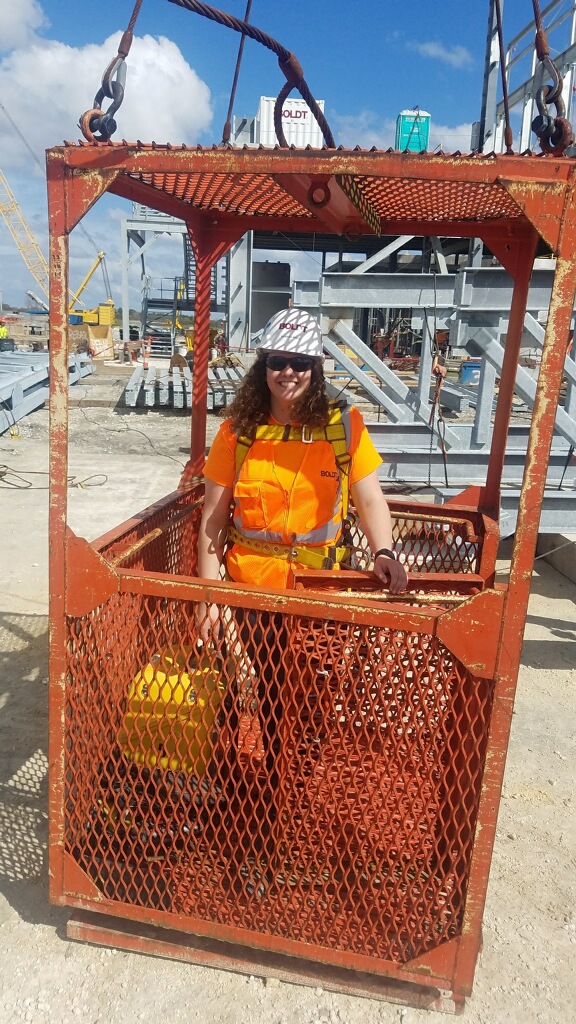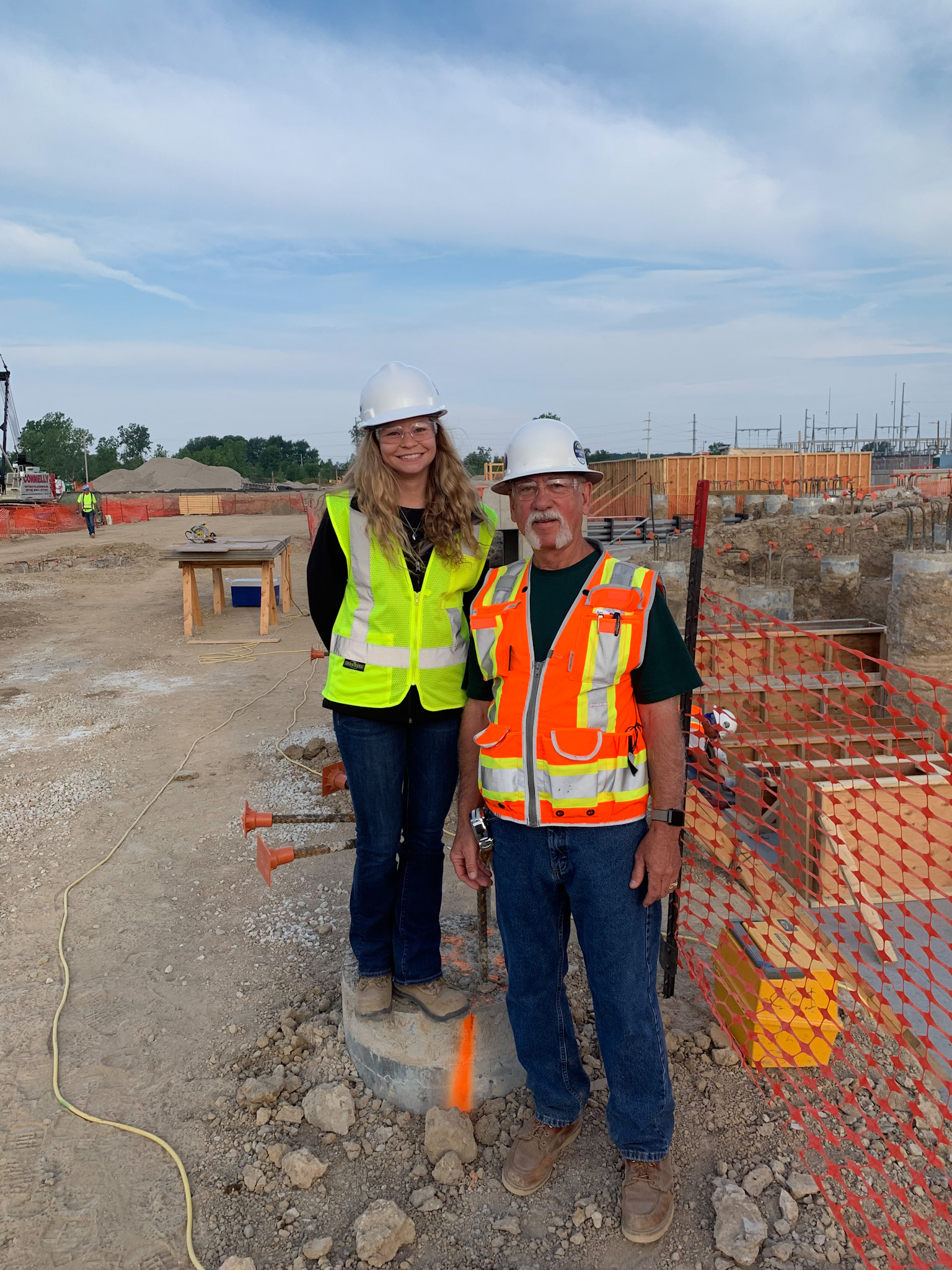
Imagine trying to complete some of the simplest tasks of your job and being met with laughter. This isn’t a hypothetical for building construction technology senior Hannah Price, it was her reality as an intern.
Price was in charge of a project on her building site, which meant she was tasked with everything from ordering supplies to scheduling. With the flooring scheduled soon, she went to the electricians to tell them the wiring needed to be finished because the flooring was going in soon. Instead of listening, they laughed in her face, not believing she knew when the flooring was getting done.
Once she got them in a room with her superiors, the mood changed and the electricians were on site shortly after. “I was trying to get these guys to do something for three weeks, and it took five minutes for these guys to do it,” Price said. “I know it’s not just a woman thing, it’s an ‘I was only in the field for seven months so I don’t have as much experience’ thing. But still, I told you word-for-word to do the exact same thing, and you’re gonna laugh at me, but he’s gonna tell you, then you’ll go do it.”
Women only make up 9.9% of the construction industry in the United States according to the Bureau of Labor Statistics. The number is mirrored in Ferris’ construction management program, with 26 of 285 students being women. Suzanne Miller, the program’s coordinator since 2013, said that number has doubled since she came to Ferris.
Part of the problem with recruiting women in the field is the fact that most people do not know what construction management entails, the complexity of the process and the coordination skills required.
While Miller said she didn’t face obstacles necessarily due to being a woman, she experienced ageism, which she said is all too common of an attitude towards new graduates.
Price feels like she has to fight a little more for respect and acceptance often being the only woman on site.
“It’s hard, because if you try too hard, then they kind of back away from you, but if you don’t try hard enough, then you’ll never get included, you’ll never get respected,” Price said.
For construction management senior Sadie Pettinger, being the only woman in the room doesn’t bother her. In her eyes, respect is earned, regardless of gender, but there are still times when being a woman in a male-dominated field means she gets treated differently.
“There are people that aren’t going to respect you because you’re a woman,” Pettinger said. “I’ve encountered men that don’t want to respect me because I’m a woman, but at the end of the day, in order for all of us to get our jobs done, we all have to work together.”
At five-foot-two, most people give her funny looks when Pettinger tells people she’s in construction. They’ll ask her if she’s the one out there swinging the hammer when in reality her career goal is to be a project manager.
Price wants to be a superintendent for commercial construction, a position she grew up watching her father in, who is a Ferris alum.
“I always loved the idea of construction,” Price said. “I thought it was really cool to see how things happen, to get to see how buildings [were] built and everything, so I went to the job sites with my dad.”
Construction management is a career that was traditionally promoted towards the boys in high school due to the idea that it was manual labor. Neither Price or Pettinger dreamed of going into this field as kids. Price was dead set on being a cashier and Pettinger a teacher. Pettinger believes with the management side of construction, the field will continue to see more women involved.

As of right now, though, Price often is still the only woman on site and will get the kind of attention she doesn’t always know how to respond to. The flirting and getting asked out while at work is something that doesn’t necessarily get to her, but it’s difficult to find the balance of responding in the right way.
“You want to joke back, but then you can’t, because then you can give them the wrong impression,” Price said. “But then it’s also, I don’t want to be totally like closed off because I wanted to gain that relationship with them.”
She began to learn who to joke around with and who to be serious with and eventually found other men on site who became good friends and advocates for her if someone else was really bugging her. But she still struggles with speaking out at times, not wanting to “pull the girl card” and having others think she can’t look out for herself.
“I didn’t want them to think that I was like, ‘Oh, I’m the girl on site and everybody needs to help me, look out for me, this and that,'” Price said. “I wanted to be able to [handle] everything myself and not have to involve other people.”
Pettinger has worked as an intern for two years for a company working with power plant projects. She said that while there are a good amount of women in director positions at her company, that’s not always the case.
Career advancement for women in construction is not always easy.
With the lack of women in the field in the first place, it’s typical for managers to circle back to the men when thinking of promotions. Part of this is the personal relationships outside of work. Pettinger said she’s not getting a beer with the men after work or going on hunting trips with coworkers.
“With being such a male-dominated environment, there’s a lot of conversations that happen outside the workplace that most women aren’t involved with,” Pettinger said. “At the end of the day, it doesn’t really bother me because if I want to do what I want to do, I’m going to work my butt off to get there and it might take a little bit longer for me because I’m a woman … but I think that in a lot of environments, you have to work to get where you want and it’s no different for me.”
Price feels that women are often seen as the ones to do the simple tasks, and when she’s on the job people would come to her for copies, even though her male peers that are just a year or two ahead of her never touch office work.
She has seen women in the field struggle to advance and get promoted, even when they’re qualified.
“The women in the field that I know moved up a lot slower than the other guys did and that’s kind of disappointing to see,” Price said. “Even pay is different, they’re not in the same position they should be.”
Gaining respect from her coworkers is one of the ways Price has succeeded in her field. Asking questions when she didn’t know something and letting her male coworkers work through their personal process allows them to feel valued in Price’s opinion and helps her work her way up.
Regardless of the issue faced, both women are proud to be in the field and of the experience they’ve earned already in school. For Pettinger, any challenge, whether it’s because of her gender or not, is one she is ready to take on in her career.
“I think that the biggest thing that I am proud of is the fact that I have continued to take these challenges,” Pettinger said. “Whether it’s a female-related challenge or just normal challenges everyone’s facing, and take it as a challenge and not take it personally, not let it like bother me, but just take it head-on and do what I can to better myself and to face this challenge.”
